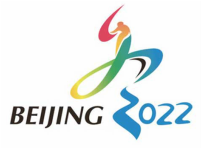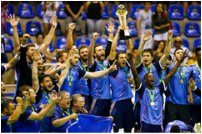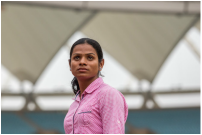
Faced between only two options of which neither were very good, the IOC narrowly selected Beijing to host the 2022 Winter Olympics over Almaty. While the Kazakh choice provided an opportunity to showcase Central Asia, the rising power there, and a venue more in line with a traditional close, natural winter setting, the Games now go to a hosting city that does not much - if any - snow during the winter, and in which the venues will be spread out miles and miles away from the actual host. What Beijing has in its favor is that China certainly has in its power the ability to create snow, and move people and earth, inhumanely or un-environmentally or not, to put on an organized show. Even if it were to have been Almaty, it also means that Asia - between Pyeongchang '18, Tokyo '20, and now Beijing '22 - will now host three straight Olympics. That's a streak the IOC usually avoids, but there was no way around it. And, Beijing will become the first city to host both a Summer and Winter Games. In the larger picture, that also showcases the larger roles China and Asia are having in geo-politics these days, and certainly more so by the time 2022 comes around. And who knows anyway - maybe by that time, global warming may make a man-made snow venue for the Games not all that strange.
No Boston
While Beijing celebrated their win, the organizers of No Boston celebrated their own victory, when Boston stepped down as a 2024 candidate city. The bid was unpopular from the start within the city, and - depending on who you believe - either the objectors won when the mayor declined to authorize insurance, or the USOC decided to pull the plug before too late anyway. In its own bid to save some face, the USOC now looks to maybe LA or San Francisco (or both?) to submit a bid. With a crowded and prominent field of candidates already, the USOC may be better off saving energy for 2026 or '28, when the Boston bad taste might not be there...
Sweden Closes UEFA's of Summer of Internationals
In Netanya, Sweden won their second-ever women's U-19 title in UEFA competition, in a 3-1 victory over Spain. Unfortunately for the Spaniards, Sweden's first title came in 2012, also against Spain. This is also Sweden's second Euro title this summer alone, with the men's U-21 team also taking that tournament title in June.

France won the World Junior title in men's handball in Brazil, after a 26-24 win against Denmark in the final. This continues a strong tradition in the sport for the French, with the senior team having won the last two Olympic titles and two of the last three World Championships. Germany defeated Egypt 35-34 for third place.
Korea Dominates World Archery Championships
As expected, South Korea topped the table at the World Archery Championships in Copenhagen, with nine medals (six gold) across the ten compound and recurve competitions. In the Olympic recurve class, 2011 World Champion Kim Woo-Jin won the men'd title and London 2012 champion Ki Bo-Hae won the women's. In perhaps the biggest upset, the Korean women failed to win gold, losing in the semis to Russia. They did secure the bronze, however, over Japan, while Russia defeated India for the gold.
Latvians Win European Beach Volleyball
I'm not sure why the European Beach Volleyball Championships are held after the Worlds, but there you go. And regardless, the Latvian team of Alexanders Samoilovs and Janis Smedins won the men's title, while the World runners-up from the Netherlands Reinder Nummerdor and Christiann Varenhorst finished third. Laura Ludwig and Kira Walkenhorst from Germany won the women's title after losing in the round of 32 at the Worlds.
World Aquatics Championships
The first week of the World Aquatics Championships in Kazan ended, with China dominating after their usual strength in diving. At the midway point, China leads the table with 20 medals to Russia's 12 in second, and the U.S. in third with six. Meanwhile, the swimming competition finally started this weekend with a bang, highlighted by the French victory in the men's 4x100 free relay that traditionally sets the tone for the week. Particularly notable in the final was the absence of the U.S, who failed to even make the final. News for Team USA wasn't much better in the women's race, finishing third after Australia and the Netherlands.

In a step toward closure on a lingering and frustrating case for track and field - and all sport - the Court of Arbitration for Sport decided that India's Dutee Chand does have the right and ability to compete in women's events, despite a naturally-occurring high ratio of male testosterone. In previous instances, the IAAF forced females in similar circumstances to undergo medical procedures to lower their natural testosterone. While Chand was encouraged as well to do so, she declined and now has won this latest stage. While the IAAf still has the opportunity to prove a substantial - and better - rationale to bar her, it is unlikely.


 RSS Feed
RSS Feed